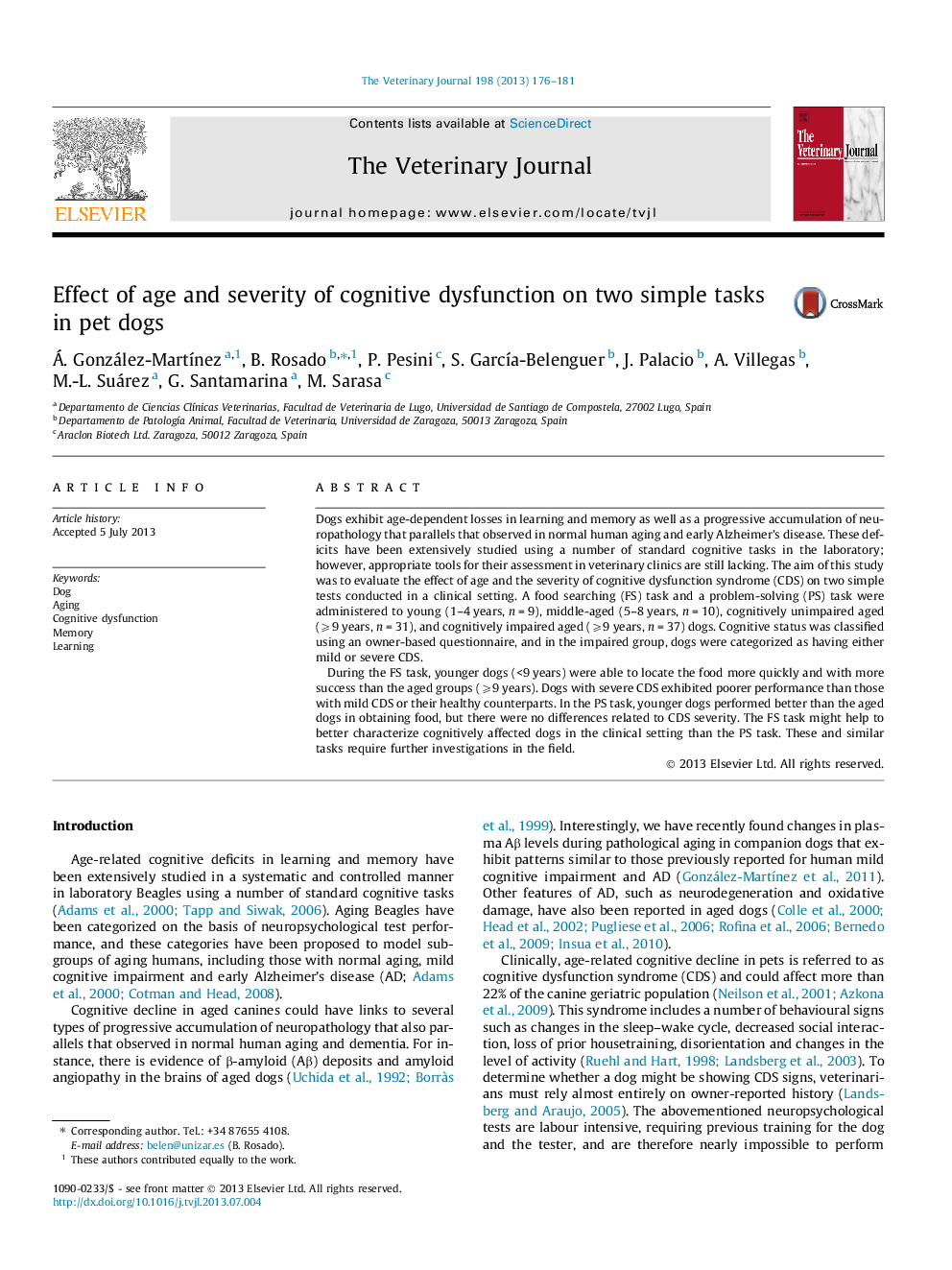| Article ID | Journal | Published Year | Pages | File Type |
|---|---|---|---|---|
| 5798487 | The Veterinary Journal | 2013 | 6 Pages |
Dogs exhibit age-dependent losses in learning and memory as well as a progressive accumulation of neuropathology that parallels that observed in normal human aging and early Alzheimer's disease. These deficits have been extensively studied using a number of standard cognitive tasks in the laboratory; however, appropriate tools for their assessment in veterinary clinics are still lacking. The aim of this study was to evaluate the effect of age and the severity of cognitive dysfunction syndrome (CDS) on two simple tests conducted in a clinical setting. A food searching (FS) task and a problem-solving (PS) task were administered to young (1-4 years, n = 9), middle-aged (5-8 years, n = 10), cognitively unimpaired aged (⩾9 years, n = 31), and cognitively impaired aged (⩾9 years, n = 37) dogs. Cognitive status was classified using an owner-based questionnaire, and in the impaired group, dogs were categorized as having either mild or severe CDS.During the FS task, younger dogs (<9 years) were able to locate the food more quickly and with more success than the aged groups (⩾9 years). Dogs with severe CDS exhibited poorer performance than those with mild CDS or their healthy counterparts. In the PS task, younger dogs performed better than the aged dogs in obtaining food, but there were no differences related to CDS severity. The FS task might help to better characterize cognitively affected dogs in the clinical setting than the PS task. These and similar tasks require further investigations in the field.
